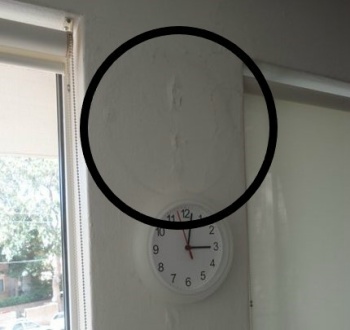
Properties are 'sold as is', as the legal maxim, caveat emptor (let the buyer beware) warns.
Caveat emptor means that if a real estate buyer wants a price reduction because of a building defect they must point it out to the seller before the Contract for Sale becomes unconditional. Otherwise, the buyer cannot complain about the condition of the house.
For this reason, buyers commonly obtain Building and Pest Inspection Reports before the Contract becomes unconditional. The real value of these reports is to find defects which are not obvious to the untrained eye such as dampness in walls or ceilings caused by water entry or below the shower caused by a waterproofing failure. As you will find out, these Reports can protect the seller as well as the buyer.
Imagine the shock that Ms Ashton received when after settlement of the sale of her renovated terrace house in Darlinghurst, in inner city Sydney, she received a demand from her purchaser to compensate him for a long list of building defects!
What made Ms Ashton different from other sellers was the fact that two years previously, she had extensively renovated the terrace house, with Council Consent. She had an owner-builders licence and managed professional tradespersons to carry out the building work.
This was residential building work which meant that the defects warranties in the Home Building Act applied. These warranties are that the work is to be carried out with due care and skill and in accordance with building standards.
The Consumer Tribunal ruled that she was liable to pay the purchaser a total of $42,317.77 in compensation for defective waterproofing of the first floor balcony and improperly installed cladding to the exterior of the attic and bedroom. She was also ordered to pay the purchaser's legal costs. The amount could have been much higher, but the Tribunal rejected many of the purchaser's claims.
The lesson here is that if a seller sells a property in which extensive building work has been carried out within the previous 6 years, then they may be liable for defects after settlement, despite caveat emptor. The exception is that if the purchaser has purchased with "full knowledge" either by obtaining Building and Pest Inspection Reports or if the vendor has pointed out the defect.
For more information, click
